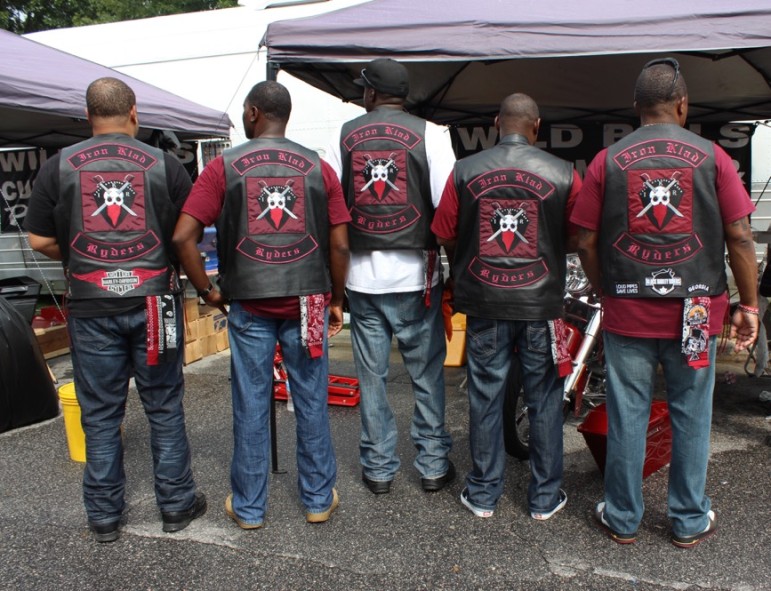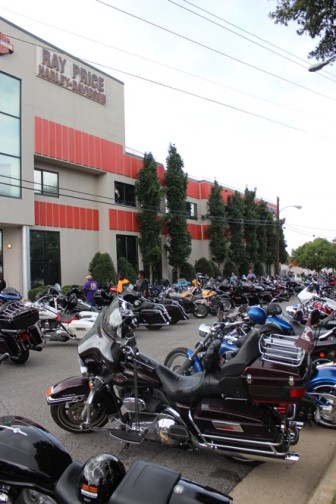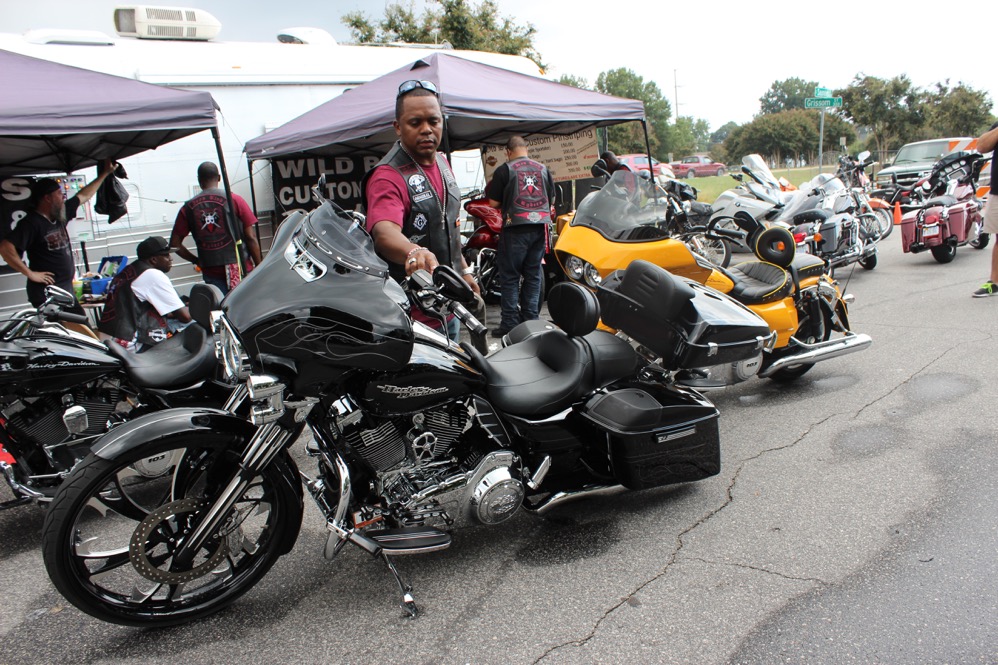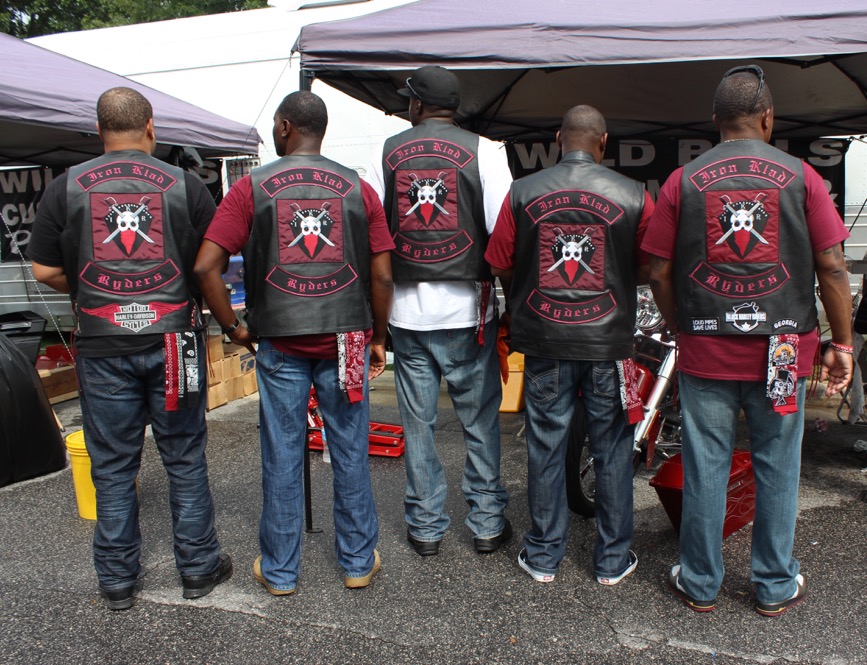Hundreds of Harley-Davidson motorcycles converged on Raleigh on Saturday to celebrate the history of the African-American biker at what was billed as the largest Iron Elite event on the East Coast.
Ray Price Harley-Davidson hosted the event, where bike club jackets noted travelers from North Carolina and at least four other states, including Virginia, Maryland and South Carolina.
“We’ve met people that are talking about how they are coming from Florida,” said Kris Weiss, Director of Marketing and Promotions at Ray Price. “It’s quite a reach. It’s a unique event that doesn’t happen in too many places around the country.”
Harley-Davidson began organizing Iron Elite events five years ago in an effort to recognize the contributions of African-Americans in the motorcycle community.

Yasmin Evans / Raleigh Public Record
While some riders wear similar jackets like those of the Iron Klad Ryders Association no bike is exactly the same
In its third and most popular year at Ray Price with an estimated 1,500 attendees, the event included local vendors, fashion and bike shows, live music and a sound competition.
Amid the unmistakable rumble of Harley engines and sea of embroidered biker vests displaying motorcycle club names across the backs, a closer look at jacket badges showed that many riders at Iron Elite shared a common thread.
“Just about everybody in my group is either active duty or retired military,” said a man who called himself “Griff” and whose jacket identified him as the vice president of the Iron Klad Ryders Association, a group of African-American bikers from Virginia. “Some of us have been to Iraq. Some of us have been to Afghanistan. Some of us have been to Desert Storm. Some of us have been to all three, so we definitely share that bond.”

Yasmin Evans / Raleigh Public Record
Hundreds of motorcyclists gather at Ray Price Harley Davidson in Raleigh on Sept 25 for Iron Elite 2015, an event honoring the heritage of the African American Rider
According to Ray Price’s Iron Elite event page, groups of African American motorcycle riders began after World War II when black veterans began forming their own clubs.
One club for African-American Harley riders calls itself the Buffalo Soldiers, a name that harkens back to the segregated black army regiments that were founded in the 1860s.
“I love history,” said Ralph “Matador” McNeil, vice president of the Raleigh chapter of the Buffalo Soldiers Motorcycle Club. “The Buffalo Soldiers for me provided that type of backdrop that I could deal with history and I could also help the community. The two just worked in tandem.”
Other African-American motorcycle clubs also said their commitment has not only been to military service, but also to community service.
“We’re not a gangster motorcycle club,” said Griff. “We are an association, meaning we are all together, we follow the rules, we love riding and we give back to the community. That’s what we do.”





